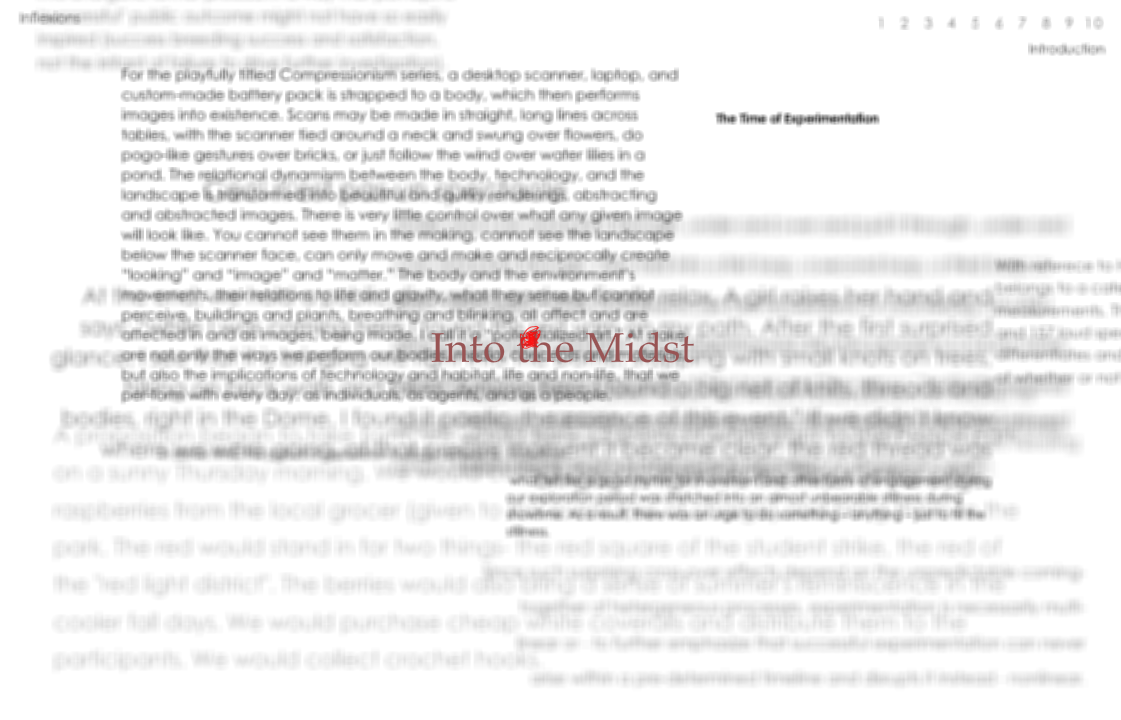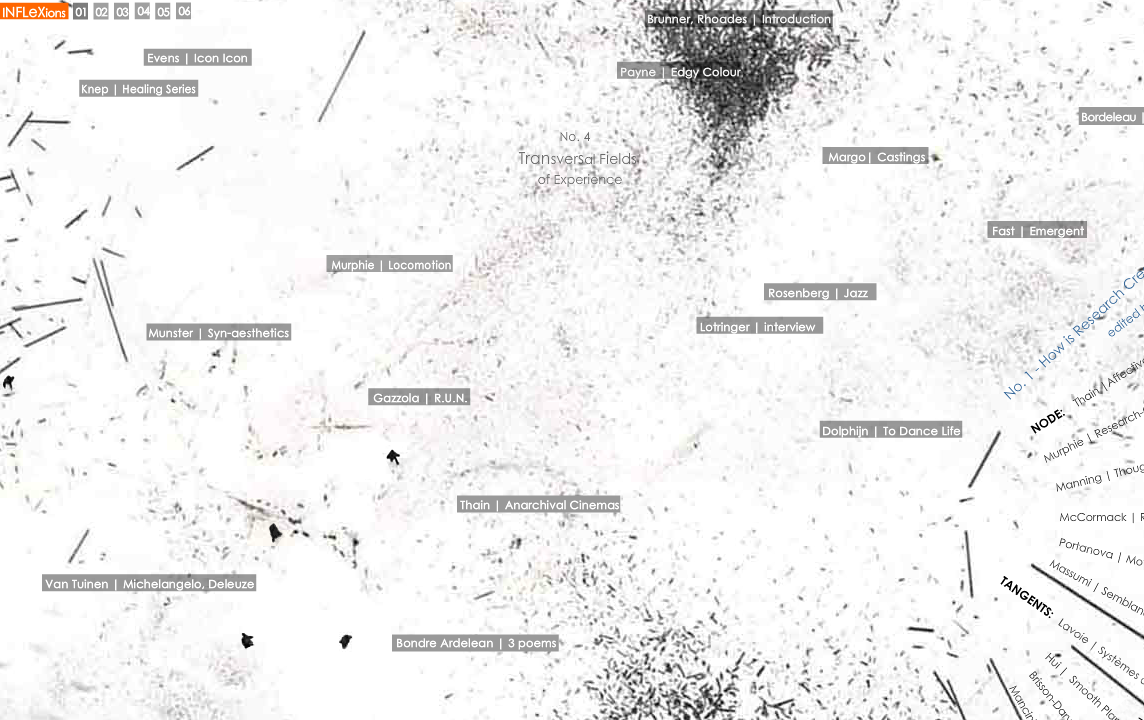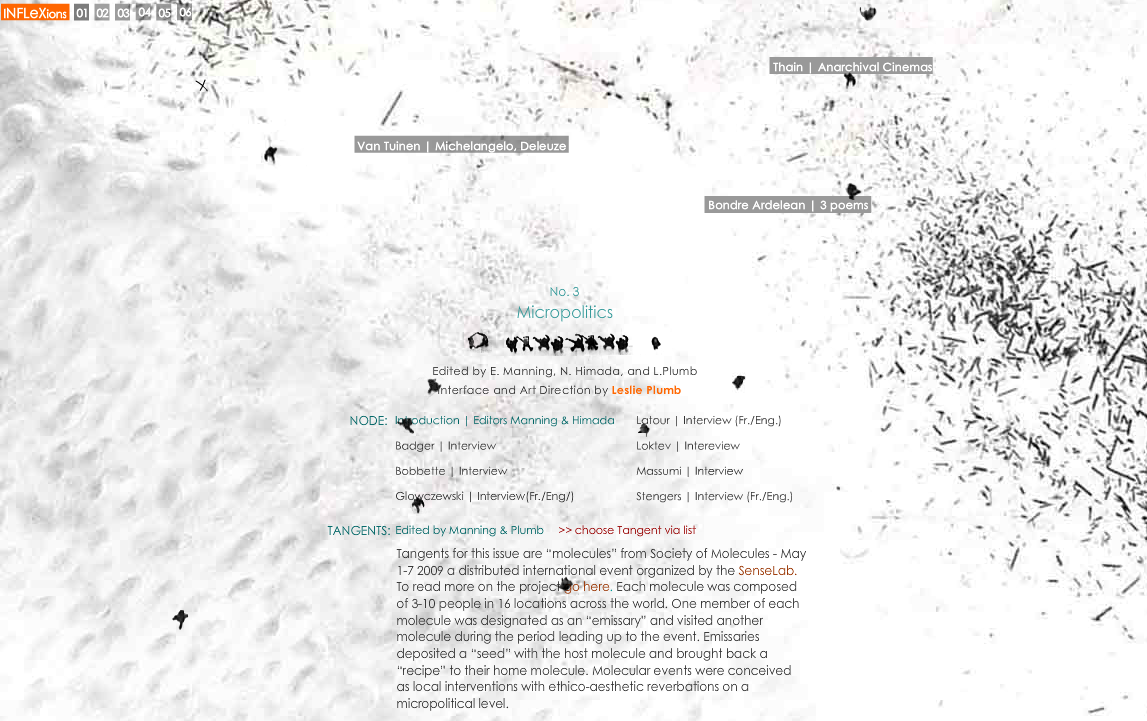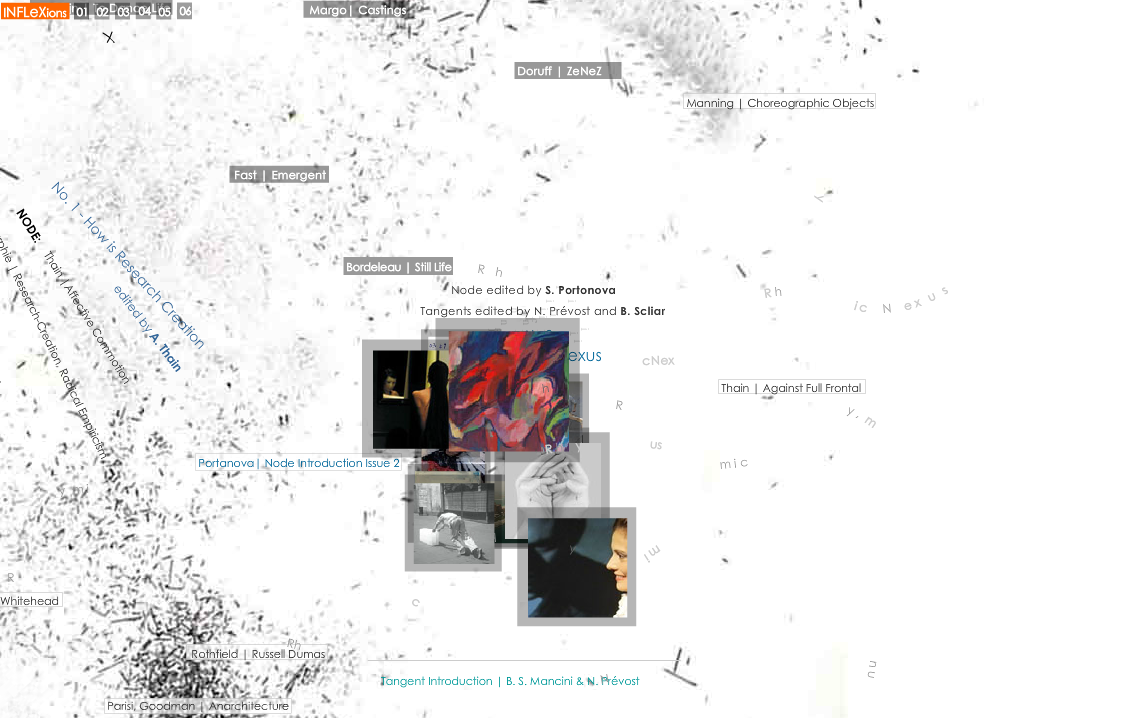Inflexions
Introduction to Journal:
Inflexions is an open-acess journal for research-creation sponsored by the Sense Lab. It publishes articles, short texts of various genres including poetry and ficto-theory, images, sound, and other multimedia content. We invite writing and/or other forms of expression actively exploring such issues as: (inter/trans/non) disciplinarity; the emergence of new modes of collaboration; micropolitics and the life and death of institutions; creativity, subjectivity and collectivity in cultural production; the ethics of aesthetics; the aesthetic as ethics. The goal is to promote experimental practices combining research and creation in such a way as to foster symbiotic links between philosophical inquiry, technological innovation, artistic production, and social and political engagement. Of continuing concern will be how these efforts may renew and recast relations between the concrete and the abstract, perception and conception, the body and technology. We hope the journal will become a tool for thinkers, builders, artists, informal groupings, and institutions to develop a mutually sustaining and enriching dialogue around these issues.
We encourage inter/trans/non disciplinary work, both individual and collaborative, that is not content to critique or negate existing models but affirms the value of creation in the research process. We also encourage authors to embrace the technical possibilities of the Web, and to test the limits of of academic writing, by considering integrating their writing with other forms of expression.
INFLEXIONS ISSUES are built around special-edited thematic clusters and invited contributions. Each is edited by one or several members of the editorial collective or by invited external editors working in consultation with the editorial collective. Unsolicited contributions are also welcome, and if accepted may be included in the thematic "Node" or the interlinked "Tangents" section. Contributions may be in English or French.
The NODE features a group of conceptually interlinked pieces that engage with a particular problematic in a variety of different modes, including but not limited to academic essays. TANGENTS present individual tangential contributions. Tangents pieces strike off in directions all their own, and resonate across their divergences. Taken together, they suggest potential connections with each other and the issue Node.
PEER REVIEW. After acceptance by the issue editor(s), every submission is vetted by several members of the editorial collective and, as needed, by members of the international advisory board. The aim of our review process is to assure the quality of contributions as part of a relational practice of generating thought that is mutually sustaining and generous with ideas.
The members of our editorial collective and advisory board are involved in various practices of research-creation.
All those potentially interested in contributing to Inflexions should contact the editorial collective at inflexionsjournal@gmail.com.
Inflexions is a member of the Open Humanites Press journal collective.
www.inflexions.org [Editorial Collective] [Advisory Board]
Inflexions is a member of the Directory of Open-Access Journals
ISSN 1916-5870
A thought is a tremendous mode of excitement. Like a stone thrown into a pond it disturbs the whole surface of our being. But this image is inadequate. For we should conceive the ripples as effective in the creation of the plunge of the stone into the water. The ripples release the thought, and the thought augments and distorts the ripples. In order to understnand the essence of thought we must study its relations to the ripples amid which it emerges.**
* After Bernard Cache (after Deleuze/Guattari, after Leibniz)
** Alfred North Whitehead




